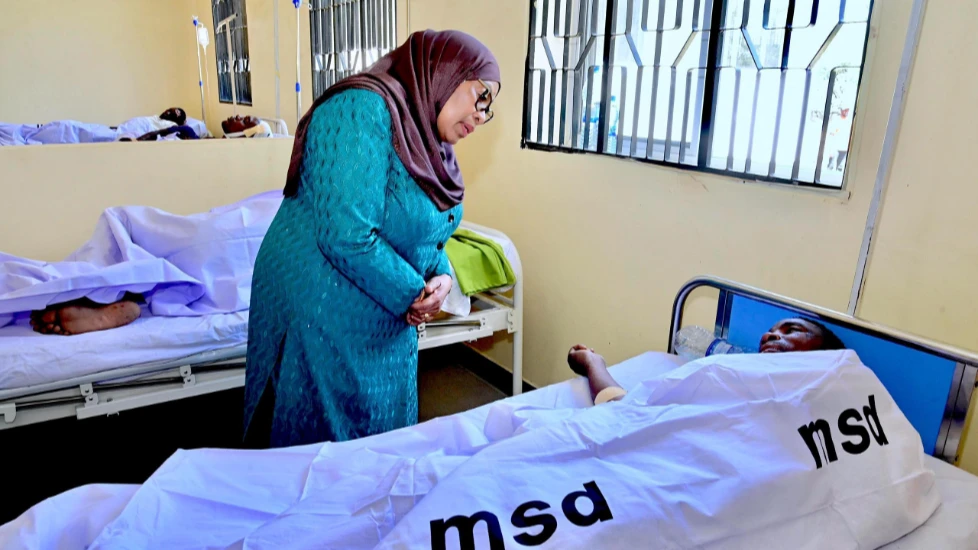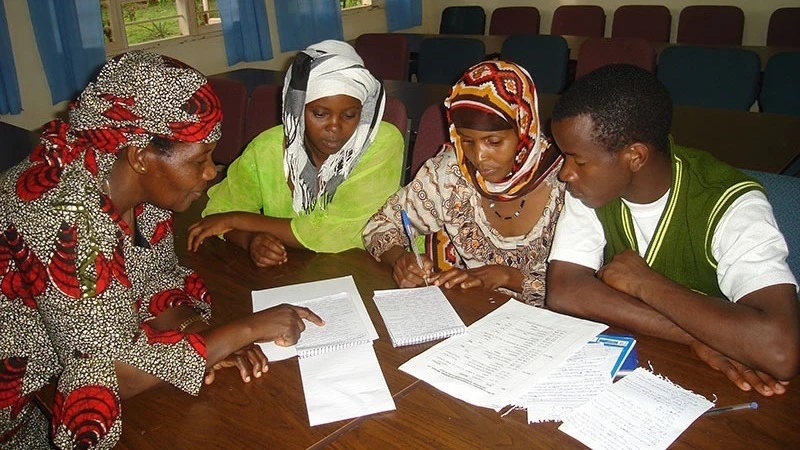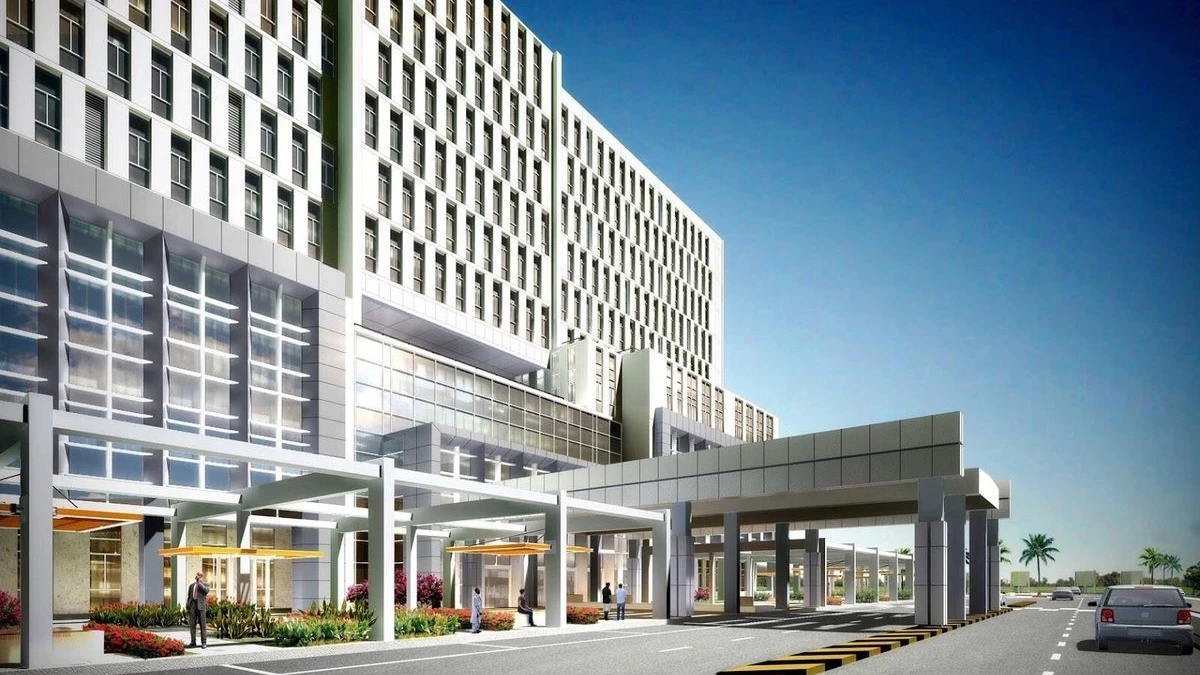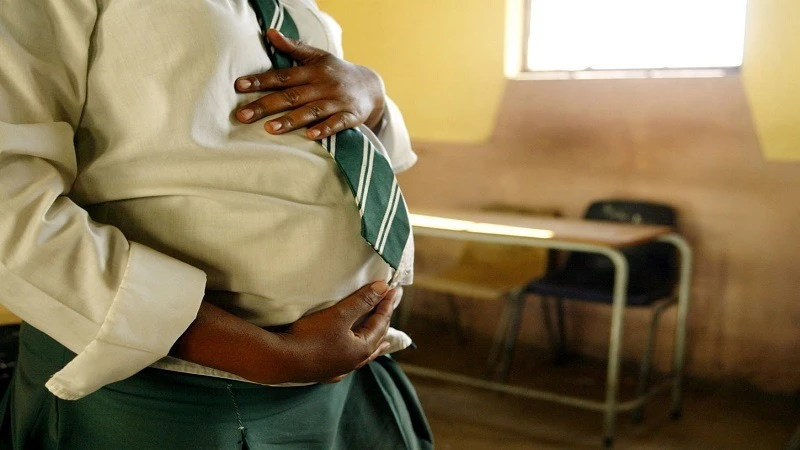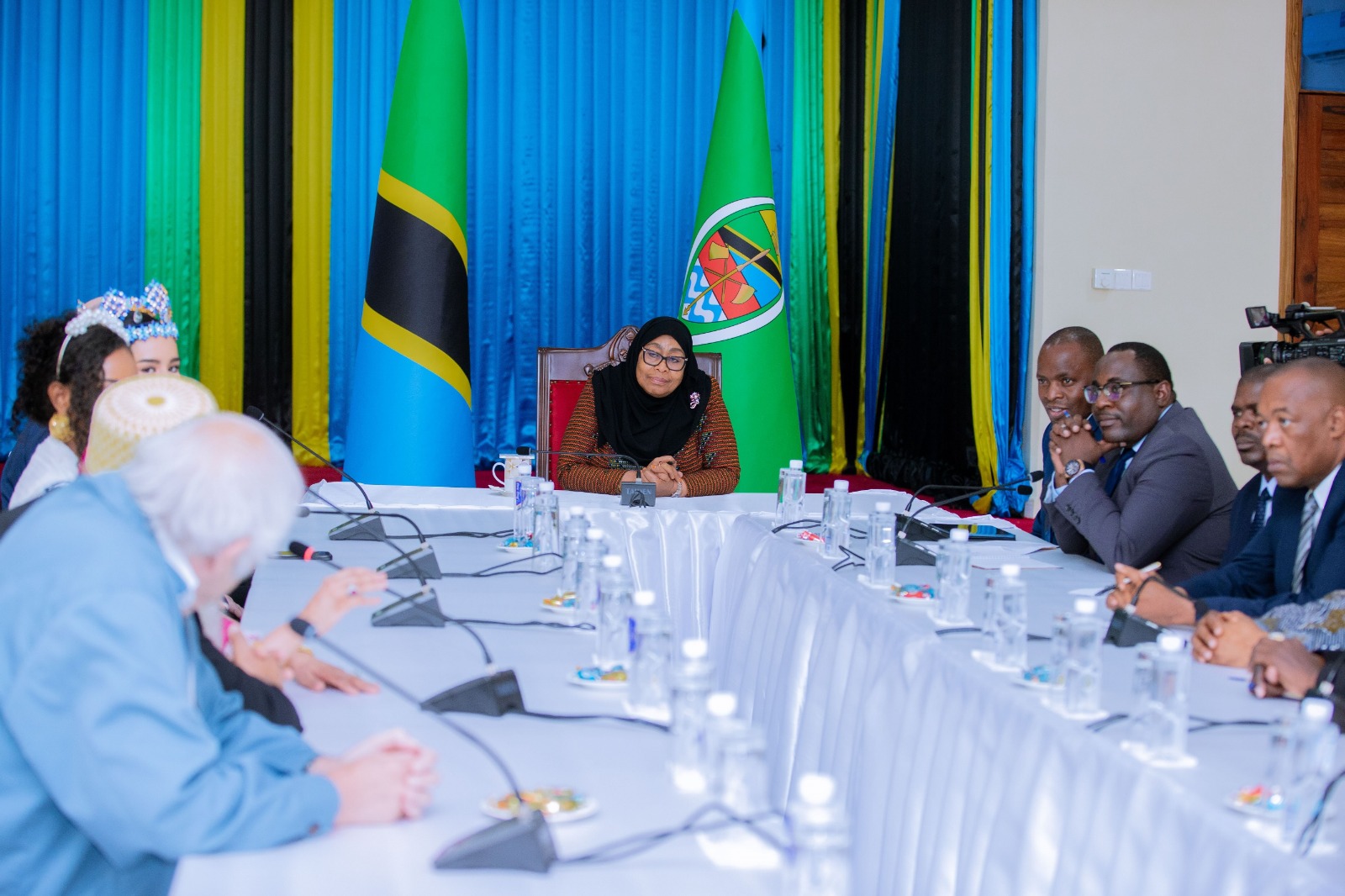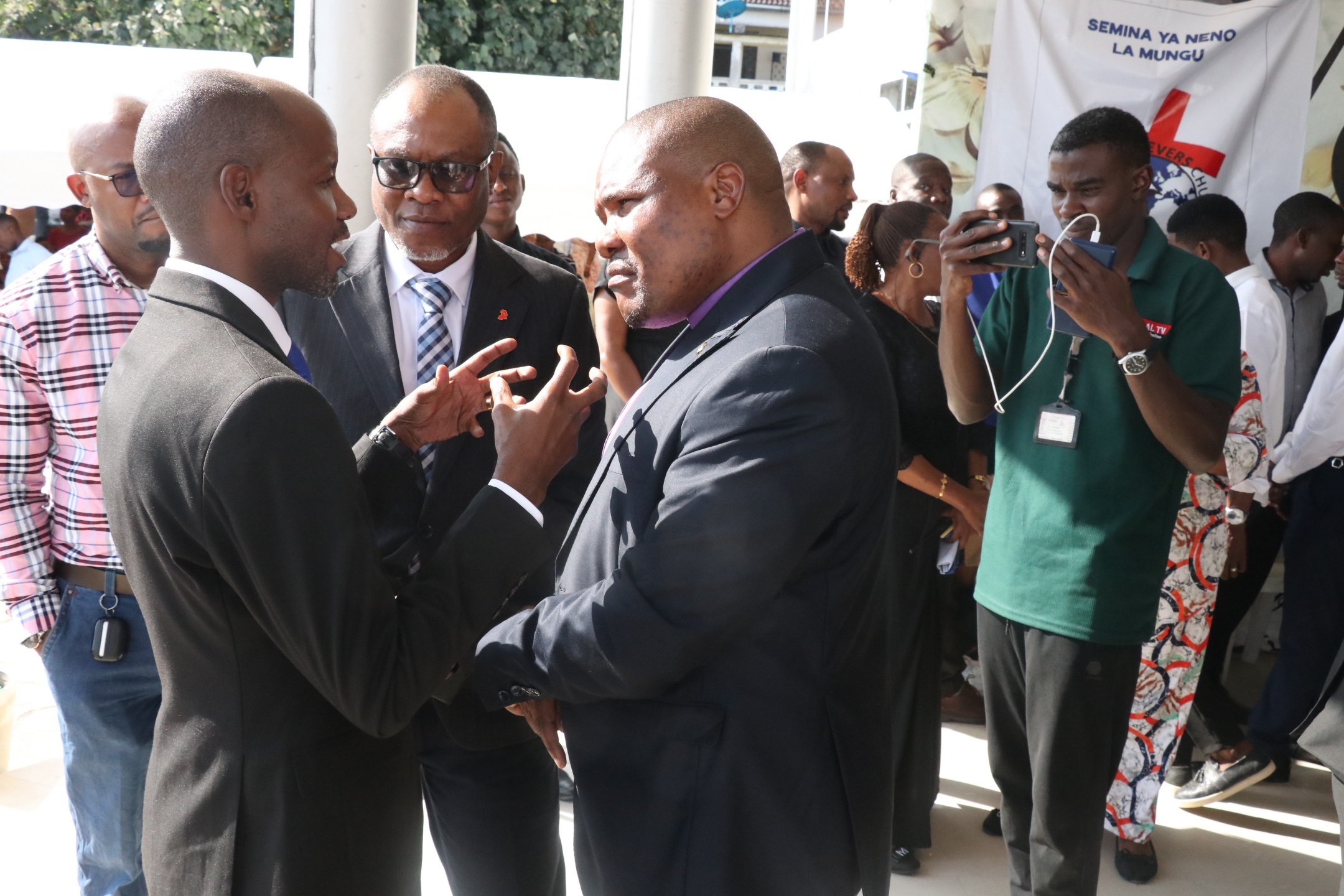Investing in people’s welfare: How TASAF is building a bottom-up economy in Tanzania
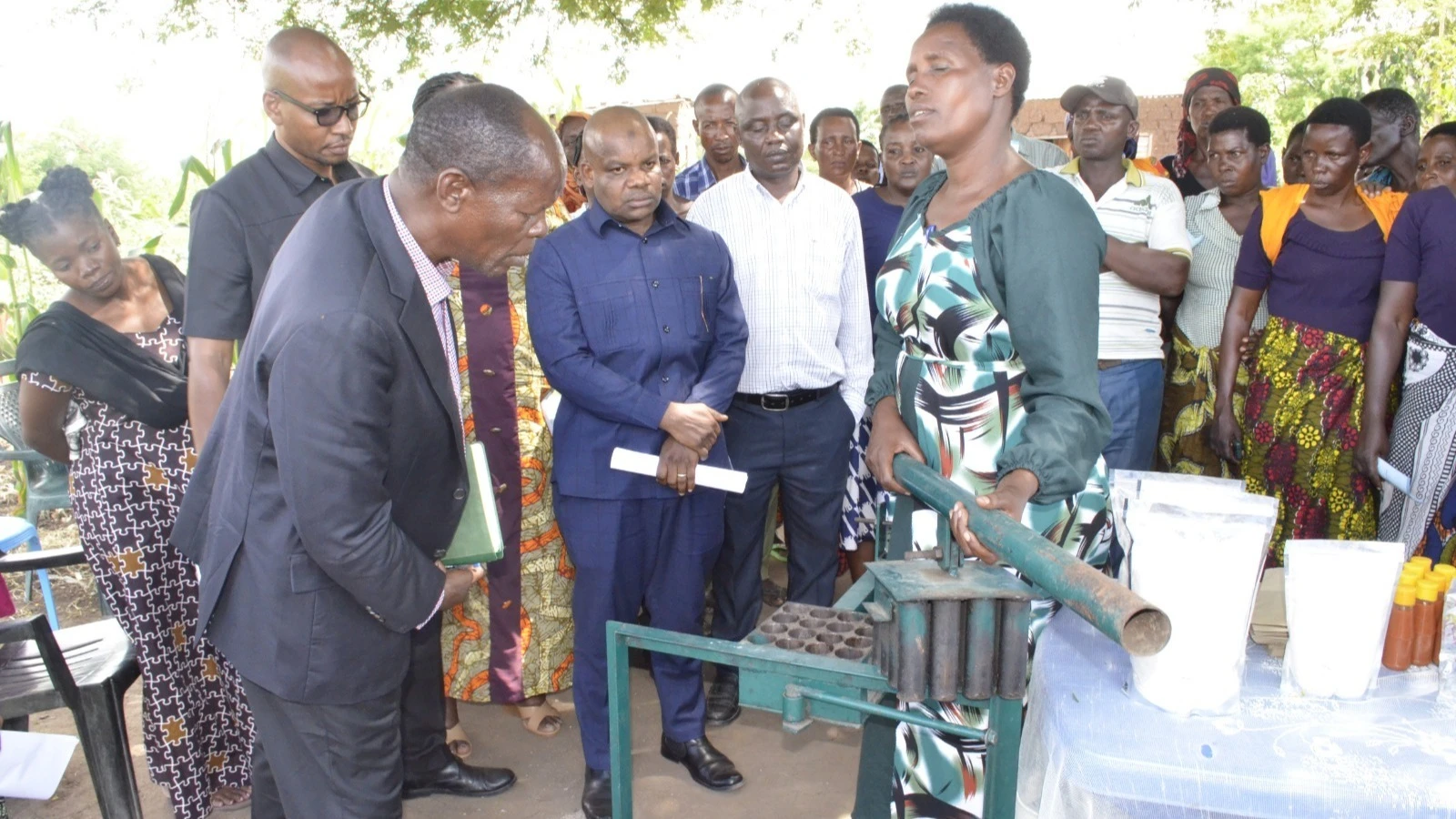
In a country where nearly half the population lives near or below the poverty line, a powerful shift is underway—made possible by development partners but anchored in Tanzania’s commitment to invest in its own people.
The Tanzania Social Action Fund (TASAF), through its flagship Productive Social Safety Net (PSSN) program, is proving that targeted social protection can do more than alleviate poverty—it can catalyze grassroots economic growth, enhance financial inclusion, and spark rural entrepreneurship.
“TASAF is not just a welfare program—it’s a foundation for inclusive economic development,” says George Simbachawene, Minister of State. “It is building Tanzania’s human capital and fueling microeconomic resilience from the ground up.”
Between January and June 2024, TASAF disbursed more than 945bn/- (approx. USD 370 million) to nearly 1.4 million households across Tanzania Mainland and Zanzibar.
The impact was immediate—not only in consumption smoothing, but in unlocking business opportunities in the informal sector.
Nearly 50 percent of the transfers were delivered electronically, leveraging mobile money platforms and agency banking to expand financial inclusion in areas traditionally unbanked.
This move is fostering a digital economy among the poorest segments, enabling secure transactions and reducing cash leakages.
“This is not just social protection. It is liquidity injected directly into village economies,” notes a Senior Economist from the Ministry of Finance and Planning. “It has multiplier effects—people spend, invest, save, and start microenterprises.”
From cash to capital: Productivity Grants driving rural entrepreneurship
TASAF’s most innovative financial tool is its Productive Grants component.
Since the launch of PSSN II, over 102,000 business plans have been funded with grants totaling 38bn/-.
These grants are turning recipients into producers and employers, not just consumers.
In Rungwe District, Freda Michael Adamson used her grant to revitalize barren land into a flourishing potato and avocado farm. Her seasonal earnings now exceed 1mn/-, and she employs local youth during peak harvest periods.
“I used to survive on handouts,” she says. “Now I am a supplier to local markets."
In Dodoma, 31-year-old Kulthum Abdallah launched a profitable liquid soap business from her backyard. With reinvested profits and peer mentorship, she now supports other women to launch similar ventures, growing a network of microenterprises.
COMSIP: Tanzania’s quiet financial revolution
At the heart of TASAF’s economic transformation philosophy is the Community Savings and Investment Promotion (COMSIP) model.
Nearly 79,000 savings groups—most of them led by women—have been established across the country. Collectively, these groups have mobilized over 14bn/- in savings and disbursed internal loans worth 7.6bn/- to their members.
The funds mobilized by beneficiaries are equivalent to the capital required to establish nearly three fully licensed deposit-taking microfinance banks in Tanzania—testament to the program’s grassroots financial prowess.
These groups function as micro-financial institutions, promoting disciplined savings, credit access, and financial literacy in rural settings.
Their grassroots governance builds community accountability and business discipline.
“COMSIP groups are transforming villages into capital hubs,” says Sarah Mshiu, TASAF’s Livelihoods Enhancement Manager.
“They’re incubators of enterprise.”
In Bagamoyo’s Konga Village, Asha Salum expanded her pineapple business using COMSIP savings. What began as subsistence farming now links her to regional markets, positioning her for agro-processing prospects in the near future.
Human capital investment: Higher education as an economic lever
Long-term growth requires skilled labor. Through a collaboration with the Higher Education Students Loan Board (HESLB), TASAF ensures that eligible youth from beneficiary households receive fully-funded university loans.
In just six months of 2024, over 8,000 students from low-income families enrolled in university—many first-generation learners destined for sectors like health, education, ICT, and business.
Lightness Mwasano, a TASAF-supported graduate from the University of Dodoma, now works min the private sector and financially supports her extended family.
“Education turned me into an asset,” she says. “Now I contribute to the economy—and to others’ futures.”
Infrastructure for economic enablement
Beyond households, TASAF has invested 186bn/- in over 14,000 community-level infrastructure projects—from market sheds and classrooms to health centers and water systems.
These assets are not just social amenities; they’re enablers of economic activity.
In Njombe Town Council, a new Maternal and Child Health Center has cut travel time and health costs for over 1,000 women—freeing up time and money that families now redirect into productivity.
Exit through empowerment:
400,000 households graduated Perhaps the most compelling business case for TASAF lies in its exit strategy.
By mid-2025, nearly 400,000 households had graduated from the program—deemed economically self-reliant after years of structured support.
“We are witnessing a shift from dependency to dynamism,” says Shedrack Mziray, TASAF’s Executive Director. “These families are starting businesses, hiring neighbors, and building
wealth.”
This signals the program’s success not as a perpetual subsidy, but as a launchpad for self-sufficiency.
DPs see return on investment
TASAF’s performance has drawn high marks from its partners.
The World Bank, OPEC Fund, and several bilateral donors have cited the program’s value-for-money, real-time data monitoring, and community ownership as hallmarks of a world-class social protection system.
A 2024 World Bank evaluation described TASAF as ‘a benchmark in poverty reduction with measurable economic returns’.
The World Bank has consistently acknowledged TASAF’s positive impact on poverty alleviation. For instance, a 2024 World Bank team expressed satisfaction with TASAF’s implementation, noting that beneficiaries were actively engaged in development activities and income-generating project.
A new social contract
As Tanzania prepares for the next phase of its social safety net, TASAF is showing that the poor are not a liability—they are latent economic potential.
With the right support, they become investors, producers, and consumers, driving a more inclusive and resilient economy.
“Without TASAF,” says Minister Simbachawene, “our poverty curve would look very different—and much darker.” But thanks to its vision, TASAF is not just fighting poverty, it is financing prosperity.
Top Headlines
© 2025 IPPMEDIA.COM. ALL RIGHTS RESERVED











